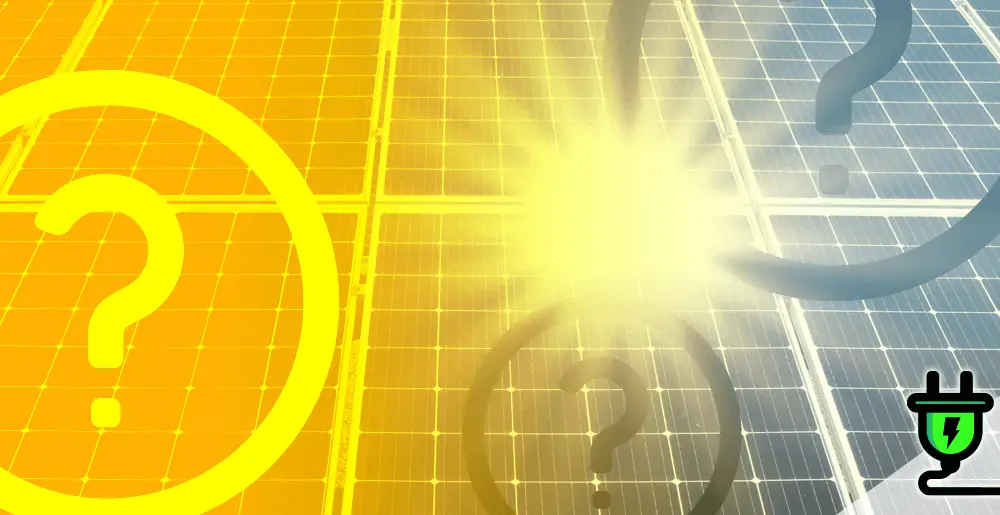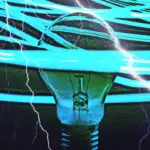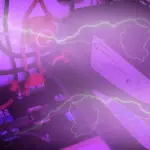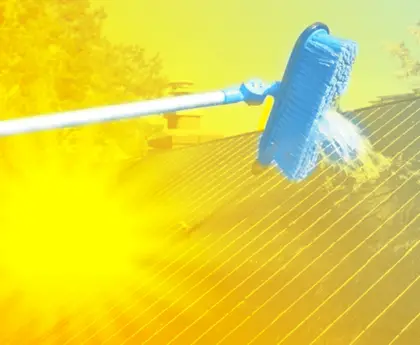Find yourself pondering the question – do solar panels need direct sunlight to work efficiently? You’re not alone – it’s a common misconception that solar panels are ineffective without consistent, direct exposure to the sun.
Solar panels do not need direct sunlight to work. However, they won’t produce as much power as they would in direct sunlight. Some studies suggest that indirect sunlight generates about 10-20% of the energy of direct sunlight.
Fact is, photons the part of the sun’s energy that solar panels generate electricity from, are in both direct and indirect sunlight. While solar panels do not need direct sunlight to produce power, solar panels will not produce as much power.
This guide will help demystify any concerns by elaborating on how solar energy systems function under various conditions, including cloudy days and partial shade.
Continue reading as we shed light on this topic!
Do Solar Panels Need Direct Sunlight?
Truth is, solar panels can operate in the shade. Although the amount and duration of shade can impact their performance, of course.
Solar panels can work in the shade
Despite popular misconceptions, solar panels are still functional in the shade. The photovoltaic technology in these panels converts sunlight into electricity, even under less-than-optimal conditions.
Although direct sunlight ensures maximum efficiency for these renewable energy sources, partial or filtered light will also result in power generation. However, the intensity of shade directly impacts output levels with denser shadows significantly reducing energy production.
Different types of inverters can influence how well your system performs in shaded conditions; some are more adaptive to fluctuations in sun exposure than others. Therefore, while it’s not ideal to install them in heavily-shaded areas, solar panels do not need constant full sun to be effective.
The amount and duration of shade matter
The amount and duration of shade that solar panels are exposed to can have an impact on their performance. While solar panels can still generate electricity in partial shade, the effectiveness will be reduced compared to when they are in direct sunlight.
The more shading there is, and the longer it lasts throughout the day, the less energy the panels will produce. It’s important to consider this when deciding where to install solar panels on your property.
The type of inverter used affects performance
The performance of solar panels is influenced by the type of inverter utilized. The inverter plays a key role in converting the DC (direct current) electricity generated by the panels into AC (alternating current) electricity that can be used to power our homes and businesses.
The efficiency and reliability of the inverter impact how much electricity is produced and how well it functions under different conditions. Choosing a high-quality, efficient inverter ensures optimal performance and maximizes the benefits of your solar energy system.
Do Solar Panels Work in Cloudy Weather?
Solar panels can still generate electricity in indirect sunlight, making them functional even on cloudy days.
Solar panels can still generate electricity in indirect sunlight
Solar panels are not solely dependent on direct sunlight to generate electricity. Even in indirect sunlight, solar panels can still produce power. This means that on cloudy days or when there is partial shade, solar panels can continue to harness the sun’s energy and convert it into usable electricity through photovoltaic (PV) technology.
While maximum efficiency is achieved when the sun is shining directly on the panels, it’s important to note that they can still be productive even without direct sunlight. So, whether it’s a slightly overcast day or you have some shading around your installation area, rest assured that your solar panels will still work and contribute to your renewable energy production.
Conversion of sunlight to electricity in cloudy weather
Solar panels can still generate electricity even in cloudy weather. While direct sunlight provides the optimal conditions for solar systems, photovoltaic (PV) technology allows solar panels to convert sunlight into electricity even when it’s cloudy.
Although the amount of electricity produced may be lower compared to sunny days, solar panels are still able to capture and convert the available sunlight into usable energy. Cloud cover does have an impact on solar panel efficiency, but it doesn’t completely diminish their ability to generate power.
So, even on overcast days, you can harness renewable energy from your solar system and reduce your reliance on conventional sources of electricity.
Do Solar Panels Work in Rain or Snow?
Solar panels can still generate electricity in rainy and snowy conditions, ensuring that they continue to function even in bad weather.
Solar panels can still generate electricity in rainy and snowy conditions
Solar panels are capable of generating electricity even during rainy and snowy conditions. Although their productivity may be slightly reduced, they can still harness the available sunlight to produce power.
Rain or snow can prevent direct sunlight from reaching the solar panels, which may decrease their efficiency. However, these weather conditions do not completely halt electricity generation.
Despite the presence of clouds or precipitation, solar panels continue to convert the available sunlight into usable energy. So, even in less-than-ideal weather conditions, solar panels remain a reliable source of renewable energy.
How weather conditions impact solar panel efficiency
Weather conditions can have an impact on the efficiency of solar panels. While direct sunlight provides optimal conditions for generating electricity, solar panels can still produce power in cloudy or overcast weather.
The amount of electricity generated may be reduced compared to sunny days, but solar panels are designed to convert even indirect sunlight into usable energy. Additionally, rain and snow do not completely hinder the functionality of solar panels; they can still generate power in these conditions.
However, it is important to note that the exact impact on electricity generation will vary depending on the intensity of shade or inclement weather.
Optimization of Solar Power System
Customize your solar power system to maximize electricity production and efficiency. Incorporate features such as tilt angles, tracking systems, and the use of high-performance panels for optimal performance.
Additionally, consider adding solar batteries to store excess energy and ensure a reliable power supply even during periods of low sunlight or high demand.
Customizing solar power systems for maximum electricity production
To maximize electricity production, it is important to customize solar power systems. This can be achieved by considering factors such as the orientation and tilt of the panels, along with the size of the system and its components.
By optimizing these parameters, solar panels can capture more sunlight and generate increased electricity output. Additionally, using high-quality inverters and efficient wiring can further enhance system performance.
Furthermore, incorporating energy storage solutions like solar batteries allows for storing excess energy generated during peak production periods for later use. All these efforts contribute to maximizing electricity production from solar power systems and making the most out of renewable energy resources.
Use of solar batteries to store excess energy
Solar batteries are an essential component of solar power systems as they enable the storage of excess energy for later use. These batteries work by converting and storing the electricity generated by solar panels during periods of high sunlight intensity.
By utilizing solar batteries, homeowners can store surplus energy during the day to power their homes at night or when the sun isn’t shining. This ensures a reliable and continuous supply of electricity, even in situations where direct sunlight is limited or unavailable.
Do Solar Panels Need Direct Sunlight FAQs
Can solar panels generate electricity without direct sunlight?
Solar panels can still generate electricity even without direct sunlight, although their efficiency may be reduced. They can produce energy from diffuse light, such as on cloudy days or in shaded areas.
How much sunlight do solar panels need to work effectively?
Solar panels work most effectively when they receive direct sunlight for several hours a day. However, even partial sunlight can still generate some electricity.
Do solar panels stop working at night or during rainy days?
Solar panels do not work at night since they rely on the sun’s energy to produce electricity. During rainy days, their output may be reduced due to decreased sunlight but will resume once the weather clears.
Can solar panels operate in cold climates with limited sunshine?
Yes, solar panels can still operate in cold climates with limited sunshine. While their efficiency may be lower compared to sunny regions, they can still generate electricity as long as there is daylight available.
Conclusion: Do Solar Panels Need Direct Sunlight?
Solar panels do not necessarily need direct sunlight to generate electricity. While they work best in direct sunlight, they can still produce power in cloudy conditions, partial shade, and even during rain or snowfall.
The efficiency of solar panels may vary depending on the amount of sunlight available, but they can still provide significant benefits even when installed in areas with less direct sunlight.






